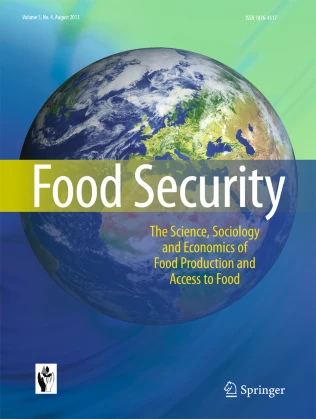Published Paper
1876-4525
Food Security
Trade liberalization and nutrition transition: how export influences households’ macronutrient consumption in Vietnam
Thang T. Vo, Phu-Duyen T. Tran, Dinh X. Nguyen, et al
DOI:
Keywords:
Trade liberalization, Trade openness, Food security, Vietnam
Abstract
This study investigates the impact of trade liberalization on the nutrition transition within Vietnamese households from 2002 to 2020. Trade liberalization is quantified using two indices that reflect employment opportunities generated by reductions in export tariffs and increased export volumes. Nutritional outcomes are assessed through calorie intake and macronutrient consumption from both at-home and out-of-home meals, using data from the Vietnam Household Living Standards Survey (VHLSS). We measure nutrition transition by the distance between households’ dietary compositions and established nutritional guidelines. Our findings indicate that trade liberalization influences household eating behaviors, shifting preferences from home-cooked meals to dining out, as evidenced by increased household intake of energy, protein (P), fat (F), and carbohydrates (C) from out-of-home meals. Additionally, reductions in export tariffs and the expansion export volumes facilitate a transition toward more balanced diets in Vietnam, demonstrated by a decreased deviation of the P: L: C ratio from the recommended dietary allowances. Policy implications of this research call for integrating trade and health policies to improve food security and implementing food policies that regulate prices and availability to promote balanced diets.
Thang T. Vo, Phu-Duyen T. Tran, Dinh X. Nguyen, et al (2025), "Trade liberalization and nutrition transition: how export influences households’ macronutrient consumption in Vietnam", Food Security, DOI: doi.org/10.1007/s12571-025-01555-3





